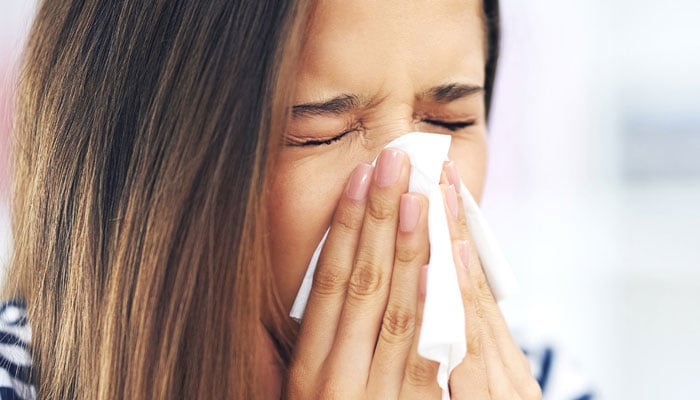Devil's confetti: How to steer clear of seasonal allergies
Here are some quick tips to beat itchy eyes, nose, and mouth during peak pollen season
Spring leaves trails of pollen, which grasps onto clothes and exposed sinuses.
This could lead to massive allergy breakouts, sabotaging your spring at best.
To beat itchy eyes, nose, and mouth a few simple hacks can make all the difference.
For starters, petroleum jelly works wonders when dealing with allergies.
Using it around your nostrils could trap pollen, making it less-likely to meander into one’s nose and eyes.
Additionally, it is crucial to keep your clothes, bedsheets, and pillows clean, ensuring that pollen doesn’t affect you at night as it might get trapped in textiles after being outside during high pollen hours.
Furthermore, rinsing your sinuses and nasal passages at the end of the day with saline solution is a quick method to flush out as much pollen as you can.
It is also important to know your predator as some people are allergic to one type of pollen found in grass, trees, and weed.
Once you find a breakthrough, you can avoid the peak season/time.
Learning the schedules of all three elements will further break it down for you, offering an insight into when it’s most likely to act out.
Grass pollens are prominent from mid-May to July, particularly during warm-high temperatures and a light breeze.
Tree pollen is active from late March to mid-May, during a temperature range of 13-15 C. Meanwhile, weed pollen peaks by the end of June-September.
In addition, make it a regular practice to use a damp cloth to wipe surfaces and vacuum your house using a HEPA filter. This limits the amount of pollen you breathe in at home.
While you’re at it, keep track via a pollen calendar as it helps to avoid the apex of pollen roaming around the air so you can leave your house when it is relatively lower.
Another way to deal with the ‘devil’s confetti’ is to use an ice pack.
Alternatively, you can place cucumbers on eyes, resulting in reduced swelling and hydration.
However, it is important to note that you must always consult your doctor over the use of allergy treatment medications such as antihistamines like fexofenadine which acts as a barrier in the histamine, causing the allergic reaction.
-
Why too much caffeine can jeopardise your health
-
Refreshing and Nutritious: Healthy Drinks for Your Perfect Lifestyle
-
What is Cortisol belly? How can you get rid of it?
-
Top five reasons to add oats in your beauty regime
-
Power of Sunblock: Your Key to Radiant Skin and Healthier Living
-
Impact of Flavonols on mortality rate, cancer, cardiovascular disease
-
Cosy Cardio: Comfortable fitness trend anyone can follow
-
Seven effective strategies to deal with Work-From-Home Burnout












